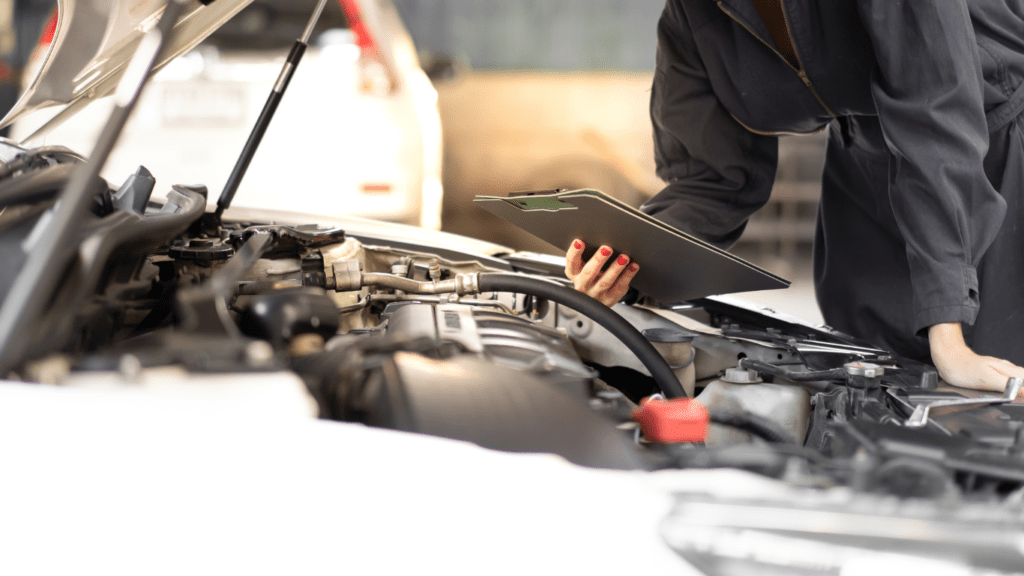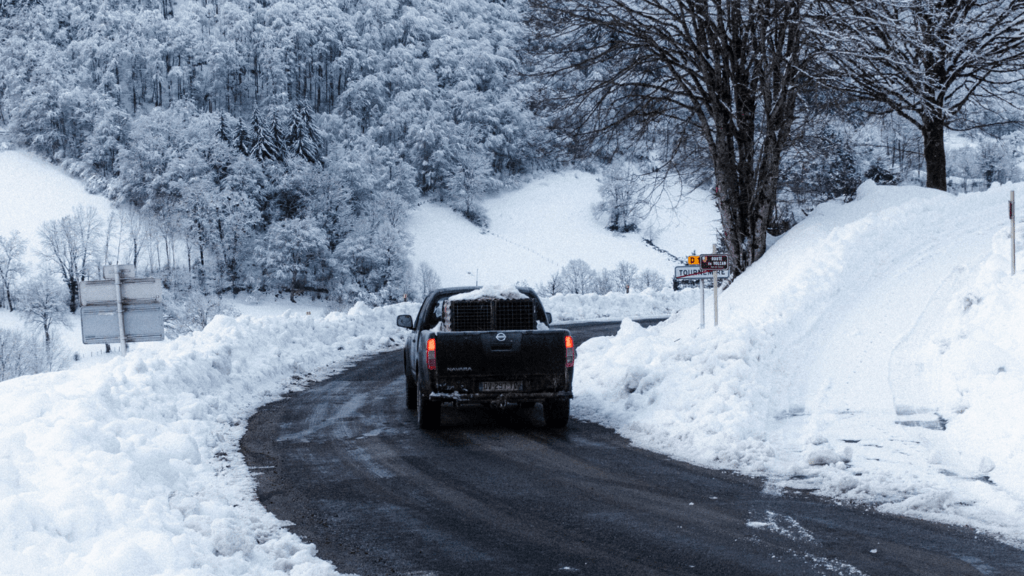Essential Preparations for Winter Driving
Winter driving requires careful preparation for safety and vehicle performance. It’s crucial to focus on key areas to ensure your car handles the cold months effectively.
Battery Check and Replacement
A proper battery check is essential in winter. Cold temperatures strain the battery, reducing its starting power. Test the voltage using a multimeter; a healthy battery shows around 12.6 volts.
Clean terminals to prevent corrosion. If the battery is over three years old, consider replacing it to avoid unexpected failures.
Tire Inspection and Winter Tire Considerations
Tire inspection guarantees better traction on icy roads. Check tread depth; it should be at least 4/32 inches for winter driving. Look for any cracks or damage on the sidewalls.
Winter tires, made from rubber compounds optimized for low temperatures, enhance grip and stability. Install them on all four wheels to maintain even handling.
Fluids Check and Antifreeze Levels
Fluids play a critical role in winter preparation. Check engine oil, transmission fluid, and brake fluid levels. Use oil with a lower viscosity rating for better cold-start performance.
Verify antifreeze protection; the coolant mixture should have a 50-50 ratio of water to antifreeze for optimal freezing point. Refill or replace coolant to maintain effectiveness.
Key Maintenance Services Before Winter

Winter driving demands thorough preparation to keep your vehicle in top shape. Here are key maintenance services vital for safe winter driving.
Brake Service and Inspection
Brake service, including:
- pad check
- increases safety during icy
- snowy condition
Mechanics assess brake pads, rotors, and fluid levels to ensure optimal performance.
Worn brake pads compromise stopping distances, crucial in winter. Mechanics should also inspect brake fluid for contamination.
Heater and Defroster Functionality
Well-functioning heaters and defrosters improve visibility and comfort in cold weather. Test the heating system for proper airflow and heat distribution. Ensure the defroster directs air to the windshield to clear frost and condensation.
Mechanics check for blockages in the air vents and verify the blower motor’s operation.
Lighting and Electrical Systems
Clear visibility is critical during short winter days and long nights. Inspect headlights, brake lights, and turn signals for functionality. Replace dim or burned-out bulbs.
Mechanics should examine the electrical system, including the battery and alternator, to prevent starting issues in cold weather. Ensure connections are clean and corrosion-free.
These maintenance checks, performed before winter, ensure a safer and more reliable vehicle.
Special Winter Considerations
Winter driving demands extra precautions to ensure safety and vehicle performance. Specific practices and preparations can make a significant difference.
Emergency Kits and Supplies
Emergency kits become crucial in winter. A well-stocked kit includes items like:
- extra blankets
- high-calorie snacks
- water
- first-aid kit
Include a flashlight with extra batteries, a shovel, and a tow rope.
Pack a portable phone charger, jumper cables, and tire chains. These supplies provide necessary aid during unexpected breakdowns or severe weather.
Engine Warm-up Practices and Tips
Warming up the engine is vital in winter. Start the car and let it idle for a few minutes before driving. This helps the engine oil circulate and reach optimal viscosity. Avoid revving the engine during warm-up to prevent undue strain.
Check that the windshield and mirrors are defrosted and windows are clear for visibility. These practices preserve engine health and ensure a safer drive in cold conditions.
Additional Services and Tips
While essential maintenance tasks lay a strong foundation, additional services and expert advice enhance winter car care.
Professional Winter Inspection
A professional winter inspection, performed by a certified mechanic, identifies potential issues specific to cold weather conditions.
Experts thoroughly examine systems such as:
- exhaust
- fuel
- cooling
Inspecting these elements prevents unexpected breakdowns in frigid temperatures.
Skilled technicians check critical components often overlooked by car owners, ensuring comprehensive vehicle readiness.
The Importance of Regular Service Checks
Regular service checks maintain car reliability throughout winter. Scheduled inspections address wear and tear early, reducing the risk of winter-related failures.
Mechanics assess elements like belts, hoses, and the electrical system during service visits. Ensuring timely intervention extends vehicle longevity and boosts overall safety.
Consistent service mitigates small issues before they escalate, making winter driving smoother and stress-free.

